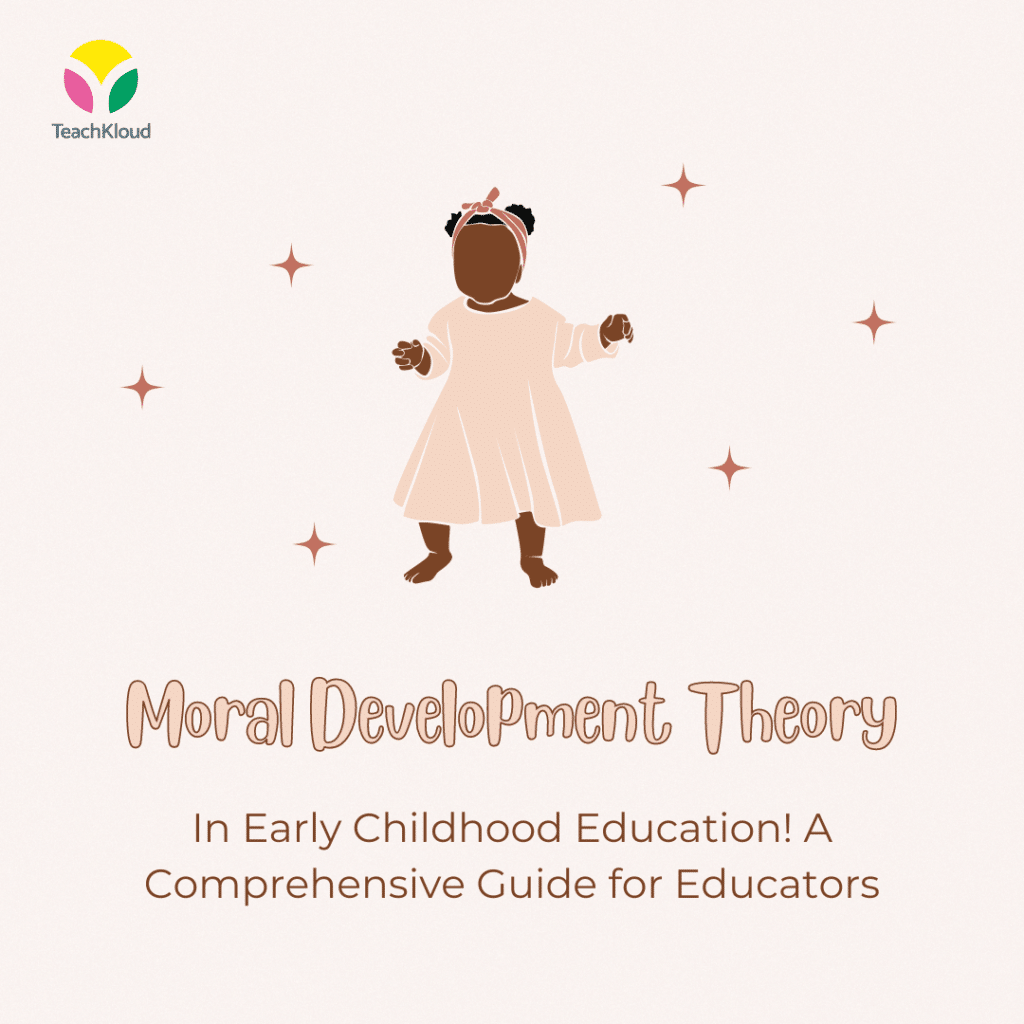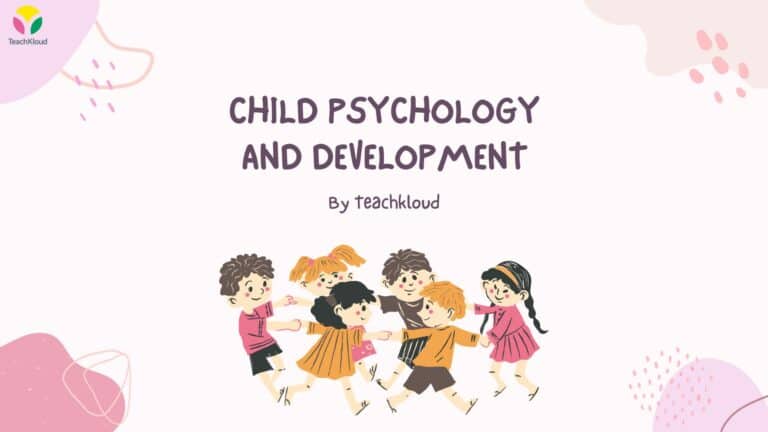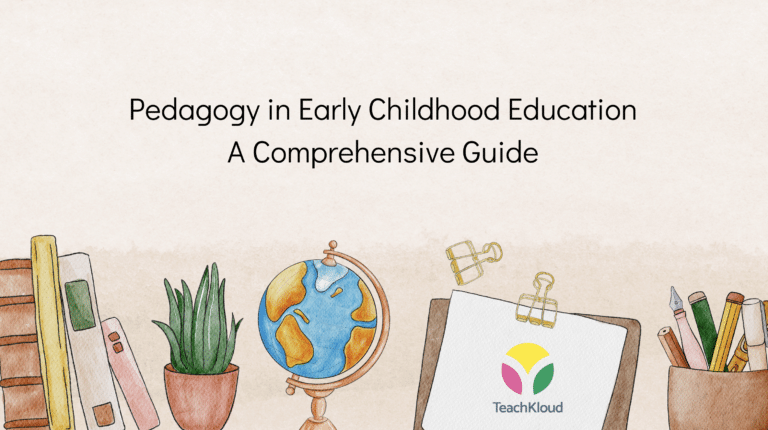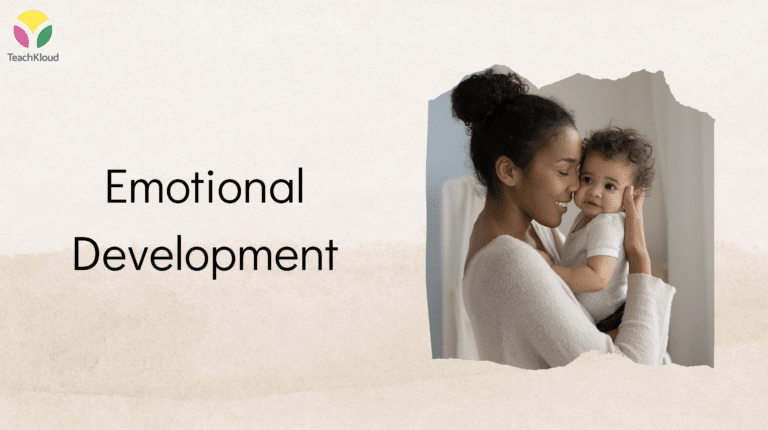The Importance of Moral Development in Early Childhood Education
You might have wondered – ‘why is moral development important in early childhood education?’ To answer it simply, laying a strong foundation for moral development in the early years equips children to navigate the complexities of ethical choices and socially responsible behaviour in their later years. This process is akin to planting a seed of ethical conduct and values deep within the child’s psyche that would foster socially responsible and empathetic adults.
But what does moral development in early childhood education look like?
Evident in children’s interactions with their peers and adults, moral behaviours manifest themselves in various ways – from sharing and taking turns, to empathizing with a friend who’s upset, or standing up against perceived injustice. Essentially, developing morality helps children understand what’s “right” and “wrong”, and not solely on a superficial level, but concerning empathetic understanding and respect for others.
What’s fascinating about this process is its ripple effect. As children become more morally grounded, their social relationships flourish, their self-esteem and confidence are boosted, and they often demonstrate a deeper engagement with learning. Importantly, research has also shown links between moral development and academic achievements – because a child who understands the consequences of their actions is more likely to possess better focus and commitment in their academic efforts.
While it’s crucial to note that moral development doesn’t happen overnight, it’s also true that the right tools, strategies, and support from educators can fast-track this process significantly. Consider it a plant – while we can’t speed up its growth artificially, we can undoubtedly provide it with the right environment, light, water, and care to ensure it grows healthy and vibrant.
As a teacher or a parent, one must be mindful of the teachable moments, encourage critical thinking, promote empathy and fairness, and model morally sound behaviours. Remember, children are brilliant observers, and they are more likely to adopt what they ‘see’ rather than just what they ‘hear’.
So, what current thinking guides our understanding of moral development in early childhood education?
Theoretical Frameworks for Moral Development in Early Childhood Education
Without a doubt, theoretical frameworks are vital in shaping our understanding of how moral development transpires in early childhood education. They serve not just as academic constructs, but as roadmaps guiding educators in fostering moral growth among children. Insight into these theories allows us to appreciate the complex process that characterises the moral development of young learners.
Jean Piaget’s Cognitive-Developmental Theory is truly instrumental in explaining moral development in early childhood. Piaget’s theory sees children as active moral learners and evolves from a strict adherence to rules and absolute obedience to authority to a more autonomous, thoughtful moral understanding. Moral development, in Piaget’s perspective, parallels cognitive growth and involves a two-stage progression—the heteronomous stage and the autonomous stage.
Furthermore, the Social Learning Theory by Albert Bandura offers a societal view of moral advancement, emphasizing how children learn moral behaviours through the process of imitation. They model behaviour from significant adults in their lives and learn from the consequences of their actions. This theory thus highlights the importance of adults demonstrating positive moral conduct.
Kohlberg’s Theory of Moral Development serves as another essential framework. It extends Piaget’s cognitive-developmental approach, introducing a six-stage model highlighting the evolution of moral reasoning from a self-centred view to a more empathetic, principled understanding of morality. The theory underscores the significance of dialogue and moral discourse in advancing moral reasoning.
Lastly, Erikson’s Theory of Psychosocial Development proposes eight stages of psychosocial growth, each involving a primary conflict. The resolution of these conflicts contributes to the formation of moral values and character, giving educators an understanding of how each stage influences moral growth and development.
Understanding these theoretical frameworks enable us to appreciate how varied and dynamic moral development can be and provides educators with strategies and insights on how to foster it effectively in the early childhood setting. Let’s discuss each one further!
Erikson’s Theory of Psychosocial Development and Its Implications for Moral Development in Early Childhood Education
Erik Erikson’s theory of psychosocial development is a foundational model for understanding moral development in early childhood education. This seminal theory posits that individuals pass through eight crucial stages throughout their life, each with its unique psychosocial crisis that must be addressed. The first five stages pertain directly to early childhood development. They are fundamental in shaping a child’s moral compass and the sense of justice, empathy, and care for others.
Here’s a quick look at these five stages and how they contribute to moral development:
The Five Stages of Moral Development in Early Childhood Education
Understanding the stages of moral development in early childhood education is crucial for educators. Each stage presents unique opportunities for the child to develop their sense of right and wrong, empathy, and fairness. Let’s delve deeper into these stages and how they can be nurtured in an educational setting.
Stage 1: Pre-Moral Stage (0-2 Years)
At this stage, children are primarily self-focused. Their sense of morality is driven by avoiding punishment and seeking tangible rewards. As an educator, you can encourage the development of moral behavior by establishing basic rules, providing positive reinforcement when these are followed, and gentle correction when they are not.
Stage 2: Moral Realism Stage (2-7 Years)
Children in this age bracket learn about rules and start to understand that these should not be broken. They see morality in black and white terms with little room for flexibility. To support moral development at this stage, educators can reiterate the importance of rules and fairness and promote empathy by highlighting how one’s actions can affect others. But what about passed the early childhood stage? Well, stage three to five explains this.
Stage 3: Moral Relativism Stage (7-11 Years)
Children at this stage begin to realise that rules are not absolute and might change according to the situation. They begin to understand fairness in a broader sense, taking into account individual needs and circumstances. Here, educators can encourage children to think critically about moral dilemmas, encourage group discussions around fairness and justice, and foster empathy and understanding.
Stage 4: Social Contract Stage (11-16 Years)
During the Social Contract Stage, children develop a more sophisticated understanding of morality. They recognise that societal norms and laws must sometimes be challenged for the greater good. To support this stage of moral development, educators can encourage debate around controversial issues and teach children the importance of critical thinking and autonomous moral judgement.
Stage 5: Universal Ethics Stage (16+ Years)
This stage, which often extends into adulthood, is characterised by the understanding that personal morality can sometimes supersede societal norms and rules. To support moral development at this stage, educators can foster an environment that encourages a continuous questioning and refining of one’s own moral beliefs and understanding.
This theory suggests that supporting moral development in early childhood education is about much more than teaching children about rules and consequences; it’s about nurturing empathy, critical thinking, and a robust sense of justice and fairness. There are other theories, such as Kohlberg’s theory of moral development, let’s look at this and it’s implications for ECEC.
Kohlberg’s Theory of Moral Development and Its Relevance to Early Childhood Education
Kohlberg’s theory of moral development is a substantial viewpoint to grasp when discussing moral growth during early childhood education. By focusing on moral reasoning, rather than observable behaviours, this theory gives us an insightful view of how children’s understanding of right and wrong evolves.
Kohlberg proposes that a person’s moral development progresses through three levels, each split into two stages. While this theory primarily applies to children from the age of 7 and up, it still offers useful insights for early childhood educators on the foundations of moral thinking.
At the preconventional level, generally observed up to the age of 9 years old, children base their moral choices on personal rewards and consequences. They start to recognise that certain actions may lead to punishment, while others may lead to a reward or praise, developing a fear of being punished, also known as moral realism.
During the conventional level, typically between the ages of 9 and 16, children begin to internalise societal standards of right and wrong, guided heavily by the expectations of adults and societal rules. This level is characterised by a shift from straightforward reciprocity to a real interest in maintaining positive relationships and societal order.
The postconventional level, which some individuals never reach, is marked by independent thought, where morality is envisioned in terms of abstract ideas such as justice, freedom, and equality. It’s important to note that these stages are not fixed, and individual children may fluctuate between them depending on their context and emotional state.
What does this mean for early childhood educators? Firstly, it’s crucial to recognise and acknowledge the moral reasoning maturity of the children in their care. Teachers can play a significant role in moral development by offering guidance, creating learning experiences where moral issues can be evaluated, and providing constructive feedback.
Moreover, understanding Kohlberg’s theory can aid teachers in devising strategies to foster moral thinking, such as role-play situations to help children reflect on moral dilemmas, or group discussions where different perspectives can be brought forth. By doing so, educators have a chance to highlight the importance of empathy, fairness, and justice in everyday decision-making. These theories seem to have these element’s in common, the importance of empathy, fairness and justice. What does Piaget have to say about all of this?
Piaget’s Theory of Moral Development: Implications for Educators
Piaget’s Theory of Moral Development enhances our understanding of how children progress in their moral thinking. Piaget suggested that children progress through two stages of moral development; heteronomous morality and autonomous morality. In early childhood education, this progression plays out in a manner where youngsters gradually transit from viewing rules as fixed and absolute to understanding that rules can be modified through social agreement.
Heteronomous Morality (2-7 Years): In this stage, children perceive the rules as given and unchangeable, originating from authoritative figures. They often adopt a literal approach in this stage, focusing more on the outcome rather than intent. For example, if a child breaks three glasses by accident, he may be seen as ‘naughtier’ than a child who breaks one glass deliberately.
Autonomous Morality (8-11 Years): During this phase, children start to appreciate that rules are not fixed but can be negotiated and changed. They begin to take intent into account while judging a situation. So in the previous example, the child who broke one glass deliberately, would now be seen as ‘naughtier’ than the child who broke three glasses accidentally.
Understanding where a child might be on this continuum can be quite beneficial for educators. To effectively incorporate this theory into teaching, educators can take the following actions:
- Supporting the Transition: To help children move from heteronomous moral stage to an autonomous one, educators can indulge in open discussions that help children understand that rules can change and can be adapted according to the situation.
- Focus on intent: Rather than simply focusing on the result, attention should be given to the intent behind an action. For example, educators can discuss with children instances where they intended to do a good thing, but the outcome was not as expected.
- Social Agreements: To expose children to the social aspect of rule-making, teachers can encourage co-operative games where rules must be mutually agreed upon. This helps children recognise the value of negotiation and compromise.
In conclusion, Piaget’s theory serves as a valuable guide in fostering moral development in young children, giving educators a deeper insight into the altering perception of morality as children grow. By incorporating this understanding into teaching strategies, educators can nurture more socially-cooperative, empathetic, and morally mindful children.
Although governments, policy makers and some parents may focus on school readiness, specifically, academics as the ultimate goal of early childhood education, of equal importance, if not more, is their moral growth- the development of a child’s sense of right and wrong, their understanding of ethical standards and norms, and their ability to become responsible social beings. Carol Gilligan proposed an ethics of care theory, which is particularly relevant to children’s moral development in their ealry years.
Promoting Empathy and Compassion in Early Childhood Education
Empathy and compassion are foundational elements of moral development and are crucial to cultivating healthier social interactions and relationships. Developing these values in children early in life can aid them in becoming thoughtful, understanding, and compassionate adults. In the context of early childhood education, several strategies can be employed by educators to encourage empathy and compassion amongst children.
Interactive role-play situations are one effective method for promoting empathy and compassion. By play-acting various scenarios, children have the opportunities to understand and experience different perspectives, situations and emotional reactions. Encouraging children to step into another’s shoes, leads them to understand how their actions might affect others, thereby nurturing a sense of empathy and compassion.
Moreover, discussions around emotions can be extremely beneficial. Regularly talking to children about various emotions, the triggers for these emotions, and appropriate responses can enhance their emotional literacy. This literacy can in turn support an empathetic approach towards others, as children grow aware of, and begin to understand, the feelings of others.
Teaching Through Exemplification
Remember, children learn a lot by observing the adults around them. Educators need to model the values of empathy and compassion consistently in their interactions – with the children and with each other. When educators show understanding and kindness in their actions, it serves as an example for the children and they are more likely to imitate this behaviour.
Integrating Empathy and Compassion in the Curriculum
Curriculum integration is another advantageous approach. By incorporating lessons on empathy and compassion within the routine curriculum, you can ensure their steady and contextual reinforcement. This could involve reading stories that emphasise these values, discussing real-world examples, or even integrating these themes into art and craft activities.
In general, supporting the development of empathy and compassion in early childhood education involves thoughtful strategies and consistent effort, but the resultant individuals — understanding, compassionate, emotionally literate — make the endeavour entirely worthwhile. The next step then is to support children in standing up for those around them and themselves when they see injustice or unfairness.
Promoting Social Justice and Equity in Early Childhood Education
As educators, you play a crucial role in promoting social justice and equity in early childhood education. The emerging years of a child’s life are the foundation for their future attitudes, knowledge and behaviours. Achieving a fair and inclusive learning environment requires a deeper understanding and deliberate strategies aimed at fostering equality and respect among young learners.
How do we support children in challenging injustice and supporting equity?
Essentially, educators have the responsibility to encourage young learners to engage with and learn about the values, attitudes, and behaviours that promote social justice and equity both in and outside the classroom. The process involves fostering critical thinking, empathy and empowering them to challenge unfair practices. The first step in this is to create an environment where children feel seen, safe, included and respected.
Creating a Respectful and Inclusive Learning Environment
First off, establishing an environment that respects diversity and values everyone’s contributions is a giant step towards promoting social justice and equity in early childhood education. Young learners should feel valued, respected and included, irrespective of their individual differences. Make your classroom a ‘safe space’ where everyone can express views openly and respectfully. Watch this video on supporting diversity and equality within your early childhood service.
Encouraging Positive Interactions and Discussions about Diversity
Children are naturally curious and will notice differences amongst their peers. Rather than ignoring these moments, use these as teaching opportunities. Engage children in conversations about diversity and inclusion. Encourage them to share their observations about the world around them, and guide them towards understanding and appreciating the beauty of diversity.
Teaching Children to Stand Up Against Unfair Practices
Teaching children to challenge unfair practices is an essential part of fostering social justice and equity. Encourage children to voice their concerns when they observe injustice and teach them appropriate ways to stand for their rights or the rights of others. Role-play situations can be quite helpful in making children understand such concepts. See more here on strategies for educators to support diverse, inclusive and just classrooms.
Integrating Social Justice Topics in the Curriculum
Integrating themes of social justice into the curriculum is another effective way of instilling the values of fairness and equality. This could be done through storybooks, class discussions, projects and other learning materials that portray diversity, resilience, empathy or other social justice themes.
To sum up, an educator’s role is vital in promoting social justice and equity in early childhood education. By intentionally planning for these experiences in the learning environment, children can develop an awareness of social injustice, empathy for others, and the ability to challenge unfair practices, which can collectively contribute towards a fair and equitable society in the future.
Summarising Moral Development
In summary, moral development in early childhood education means understanding and integrating key concepts of fairness, respect, empathy, and compassion. It’s about enhancing a child’s cognitive capacity to discern between right and wrong, and fostering an innate sense of responsibility and fairness.
As an educator, you play a key role in steering this development process. Your support can make a difference in various ways:
- Understanding the stages: Appreciating the theoretical frameworks of moral development, such as those presented by Erikson, Kohlberg, and Piaget, can help you tailor your teaching methods according to the child’s developmental stage.
- Promoting empathy and compassion: You can incorporate activities in the curriculum that foster empathy and compassion. You can also adopt a teaching approach that exemplifies these traits.
- Encouraging respect and inclusivity: As an educator, you can create a learning environment that promotes respect for others and celebrates diversity. This includes integrating social justice topics in the curriculum and teaching children to stand up against unfair practices.
In conclusion, as an early childhood educator, you can significantly contribute to a child’s moral development. Remember, the goal is to aid children in developing a robust moral compass that guides them throughout their lives.




